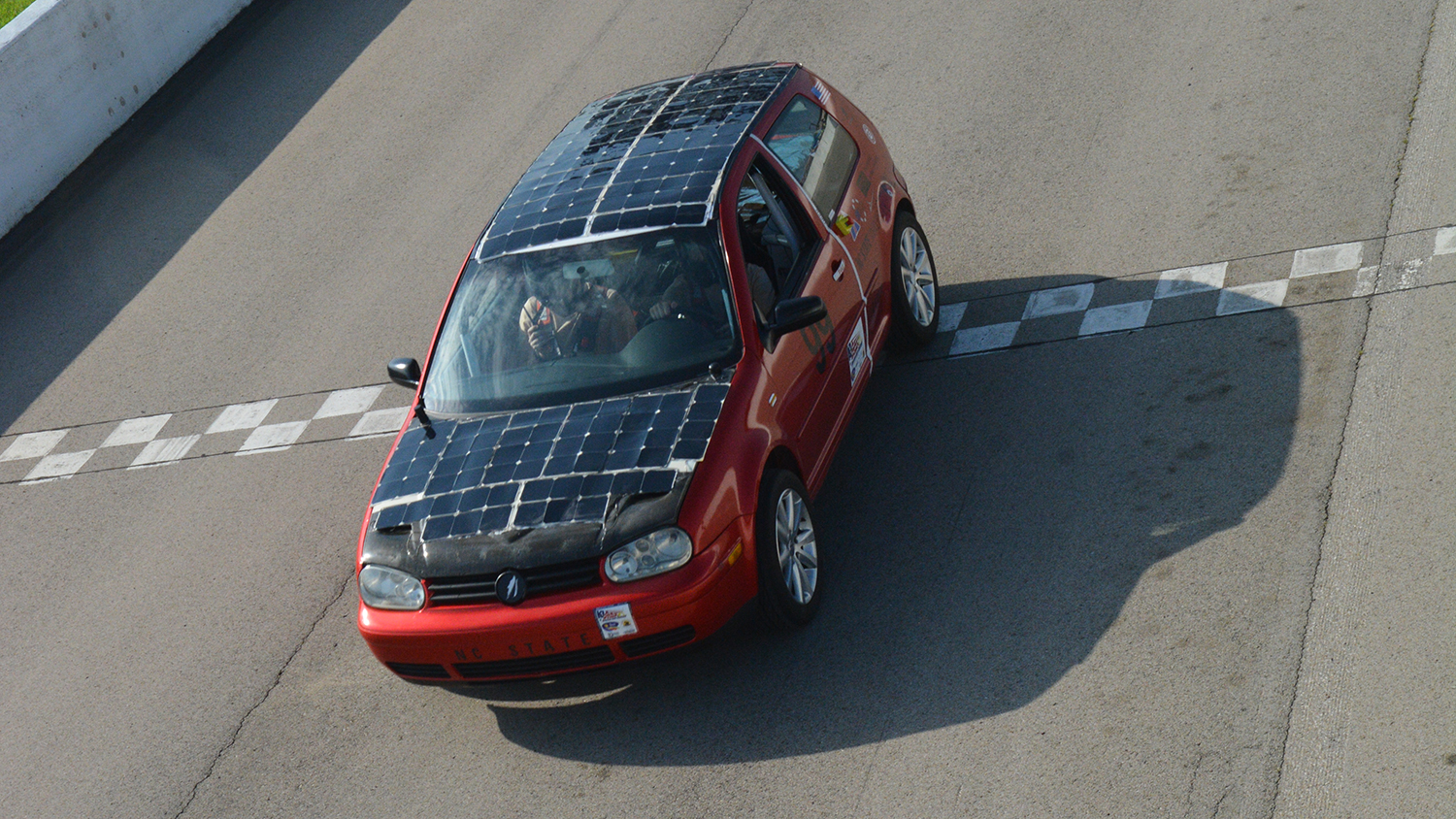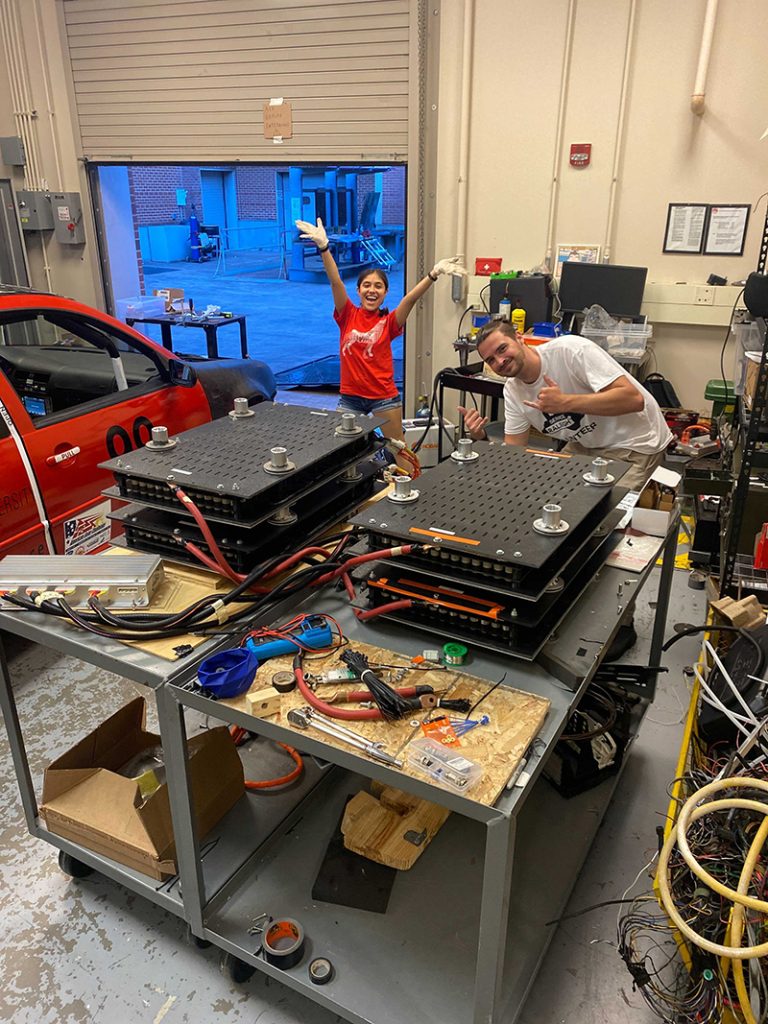Here comes the solar-powered car

Since 2016, SolarPack has pushed the boundaries of what is possible for a sustainably powered car. Thanks to those years of work and innovative thinking, the team put together a record-breaking car for this year’s Formula Sun Grand Prix (FSGP).
At FSGP, teams compete to see whose solar car can complete the most laps around the 2.5-mile track over three days of competition. There is also a spot on the podium for the team that completes the fastest lap of the day. This year, SolarPack took that spot with a 3-minute, 1-second lap.
Not only did the team complete the fastest lap in this year’s competition, they broke the record for the entire history of the competition, which has been running since 2000 as part of the American Solar Challenge.
This year’s success was built on their effort in the 2021 competition. That year, the team got to compete on the track in FSGP for the first time after passing days of safety and performance tests.
“This made the event a success and anything that happened after that point was icing on the cake,” said alumnus Benjamin Nichols, the team’s technical director. “Due to lasting issues that we had seen in scrutineering, we were only able to complete five laps that year, but as I said already, just being on the track was a success for us.”
Running on the high of that performance, the team returned to the garage this year to continue improving their build.

They have a unique car. Rather than starting from scratch, they bought a 2001 Volkswagen Golf GTI that they have since extensively refurbished. One of the students’ goals is not just to build a solar car that can go far or fast, but to also show how this is a viable option for the future of the automotive industry.
Over the last school year, they had a list of changes they wanted to make. The most important of these was replacing the battery pack, which weighed 700 pounds. To do so, they fundraised to build a totally new battery pack. Once they had the funds, they individually tested 1,800 lithium ion cells to narrow down to the 1,300 they needed for the car. This brought the weight down by 450 pounds.
“We also wanted to incorporate some more quality-of-life components into the car like power steering and electronic power braking to make it more practical since that is the goal we hold the highest on this vehicle,” Nichols said.
With these changes in place, the team traveled to Topeka, Kansas, to make history. Now they are already looking forward to the future.
“The team has worked through so many challenges and we have shown that we can do so much with so little,” Nichols said. “Just imagine what we could do with the right amount of support. In the future we would like to compete in the American Solar Challenge, which FSGP is a qualifying event for.”